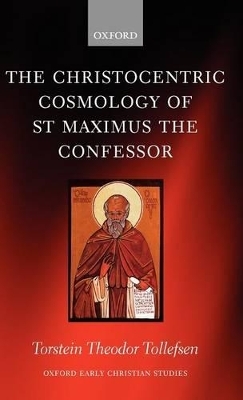
The Christocentric Cosmology of St Maximus the Confessor
Seiten
2008
Oxford University Press (Verlag)
978-0-19-923714-2 (ISBN)
Oxford University Press (Verlag)
978-0-19-923714-2 (ISBN)
Maximus the Confessor (580-662) was an important Byzantine thinker, the 'father of Byzantine theology'. This study describes his metaphysical world-view. The discussion covers Maximus' doctrine of creation, the Logos and the logoi, the cosmic order, the activities or energies of God, and how created beings may participate in God.
St. Maximus the Confessor (580-662), was a major Byzantine thinker, a theologian and philosopher. He developed a philosophical theology in which the doctrine of God, creation, the cosmic order, and salvation is integrated in a unified conception of reality. Christ, the divine Logos, is the centre of the principles (the logoi ) according to which the cosmos is created, and in accordance with which it shall convert to its divine source.
Torstein Tollefsen treats Maximus' thought from a philosophical point of view, and discusses similar thought patterns in pagan Neoplatonism. The study focuses on Maximus' doctrine of creation, in which he denies the possibility of eternal coexistence of uncreated divinity and created and limited being. Tollefsen shows that by the logoi God institutes an ordered cosmos in which separate entities of different species are ontologically interrelated, with man as the centre of the created world. The book also investigates Maximus' teaching of God's activities or energies, and shows how participation in these energies is conceived according to the divine principles of the logoi. An extensive discussion of the complex topic of participation is provided.
St. Maximus the Confessor (580-662), was a major Byzantine thinker, a theologian and philosopher. He developed a philosophical theology in which the doctrine of God, creation, the cosmic order, and salvation is integrated in a unified conception of reality. Christ, the divine Logos, is the centre of the principles (the logoi ) according to which the cosmos is created, and in accordance with which it shall convert to its divine source.
Torstein Tollefsen treats Maximus' thought from a philosophical point of view, and discusses similar thought patterns in pagan Neoplatonism. The study focuses on Maximus' doctrine of creation, in which he denies the possibility of eternal coexistence of uncreated divinity and created and limited being. Tollefsen shows that by the logoi God institutes an ordered cosmos in which separate entities of different species are ontologically interrelated, with man as the centre of the created world. The book also investigates Maximus' teaching of God's activities or energies, and shows how participation in these energies is conceived according to the divine principles of the logoi. An extensive discussion of the complex topic of participation is provided.
1. Introduction ; 2. The divine Ideas and the creation of the Cosmos ; 3. The Logos, the logoi and created beings ; 4. The divine activity ; 5. The concept of participation ; Conclusion ; Bibliography ; Index
| Erscheint lt. Verlag | 7.8.2008 |
|---|---|
| Reihe/Serie | Oxford Early Christian Studies |
| Verlagsort | Oxford |
| Sprache | englisch |
| Maße | 145 x 223 mm |
| Gewicht | 437 g |
| Themenwelt | Geschichte ► Teilgebiete der Geschichte ► Religionsgeschichte |
| Geisteswissenschaften ► Philosophie ► Philosophie Altertum / Antike | |
| Religion / Theologie ► Christentum ► Kirchengeschichte | |
| ISBN-10 | 0-19-923714-X / 019923714X |
| ISBN-13 | 978-0-19-923714-2 / 9780199237142 |
| Zustand | Neuware |
| Haben Sie eine Frage zum Produkt? |
Mehr entdecken
aus dem Bereich
aus dem Bereich
Herkunft, Blüte, Weg nach Osten
Buch | Hardcover (2024)
C.H.Beck (Verlag)
39,00 €
Von den Anfängen bis zur Gegenwart
Buch | Hardcover (2022)
C.H.Beck (Verlag)
34,00 €
warum die Religionen erst im Mittelalter entstanden sind
Buch | Hardcover (2024)
C.H.Beck (Verlag)
38,00 €


